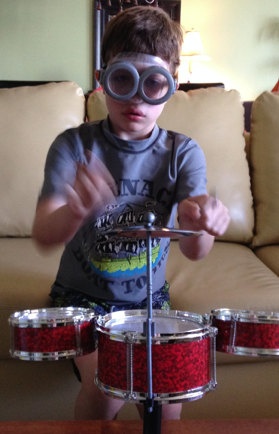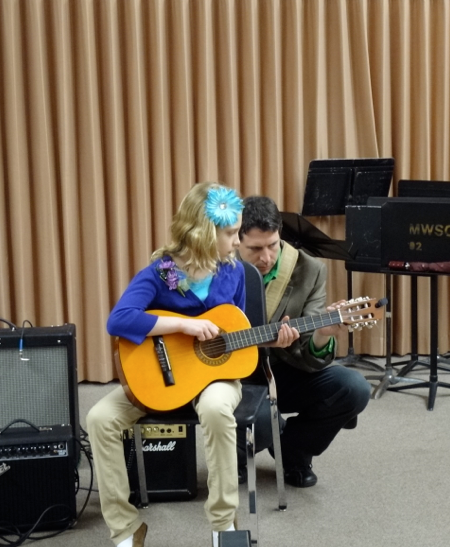 Hey, let’s face facts. Learning a musical instrument is fun and rewarding but it’s also kind of tough.
Hey, let’s face facts. Learning a musical instrument is fun and rewarding but it’s also kind of tough.
If it were easy, everyone would play an instrument.
Unfortunately, we know that it’s kind of a rare skill amongst the population at large.
Personally, I think everyone should learn to play something. And they can! The key is to understand that simple doesn’t always mean easy. That anything worth doing requires effort, energy and attention. To know that you might not always feel like practicing. You might feel bored or frustrated sometimes. But you know you are going to do it anyway.
There are certain things we all do. We like to eat. We like to sleep.
Hey, we are human and we do those things everyday because we need to. Well, now we are talking about musicians. Guess what they do everyday?
Musicians play music and practice it. That’s just who we are and part of what we do.
Everyday.
The days we sleep and the days we eat.
For beginners, it is often tough to accept that it takes a lot of time and effort to become the accomplished musician they dream of, but with the following tips, you’ll find it easy to stay dedicated in your music lessons.
Choose your instrument wisely.
When you’re first considering music lessons, follow your natural inclination toward a specific instrument. Also, it is worth taking a wander around your local music shop. Not only does this give you the chance to hold the instrument, but you can get demonstrations of every variety until you find something that’s right for you. If you don’t find yourself immediately attached to anything, you can always rent instruments – or try one that everyone has access to… with some singing lessons!
Learn music you like.
It’s all well and good to aspire to play the great classics that every professional has in their repertoire, but when starting off, it is worth picking some pieces of music that mean something to you. If you ask your teacher to help you tackle a piece you feel a connection with, you’re far more likely to want to carry on learning and attempting to play.
Learn with others.
Even though many of us opt for private music lessons with the hope of learning faster with more one-on-one time, it can actually be beneficial to learn with a friend or a family member. This works especially well if you’re trying to encourage a child as young children love to be involved in what their parents are doing. Group classes are a great way to get started and make some like-minded friends. Especially important for the socialization of our littlest learners.
Music is NOT rudiments and scales?
Traditional music teachers will often begin by teaching scales, chords and other basics but these can get extremely tiresome after a few lessons. Find a teacher that will start by teaching you based on YOUR musical goals and it might just keep you interested for when more structured rules and theories need to be learned.

Don’t be afraid to jam.
Even the most rehearsed and experienced musicians need some moments of letting go. This is something you can easily achieve with a jamming session. Whether you’ve learned just one song or you have a whole repertoire, spontaneity not only encourages creativity, but it might open up your eyes to things you never knew you could play. Finally, jamming might reveal to you what you want to focus on in your lessons, which makes it easier to stay dedicated and work toward your goals.

